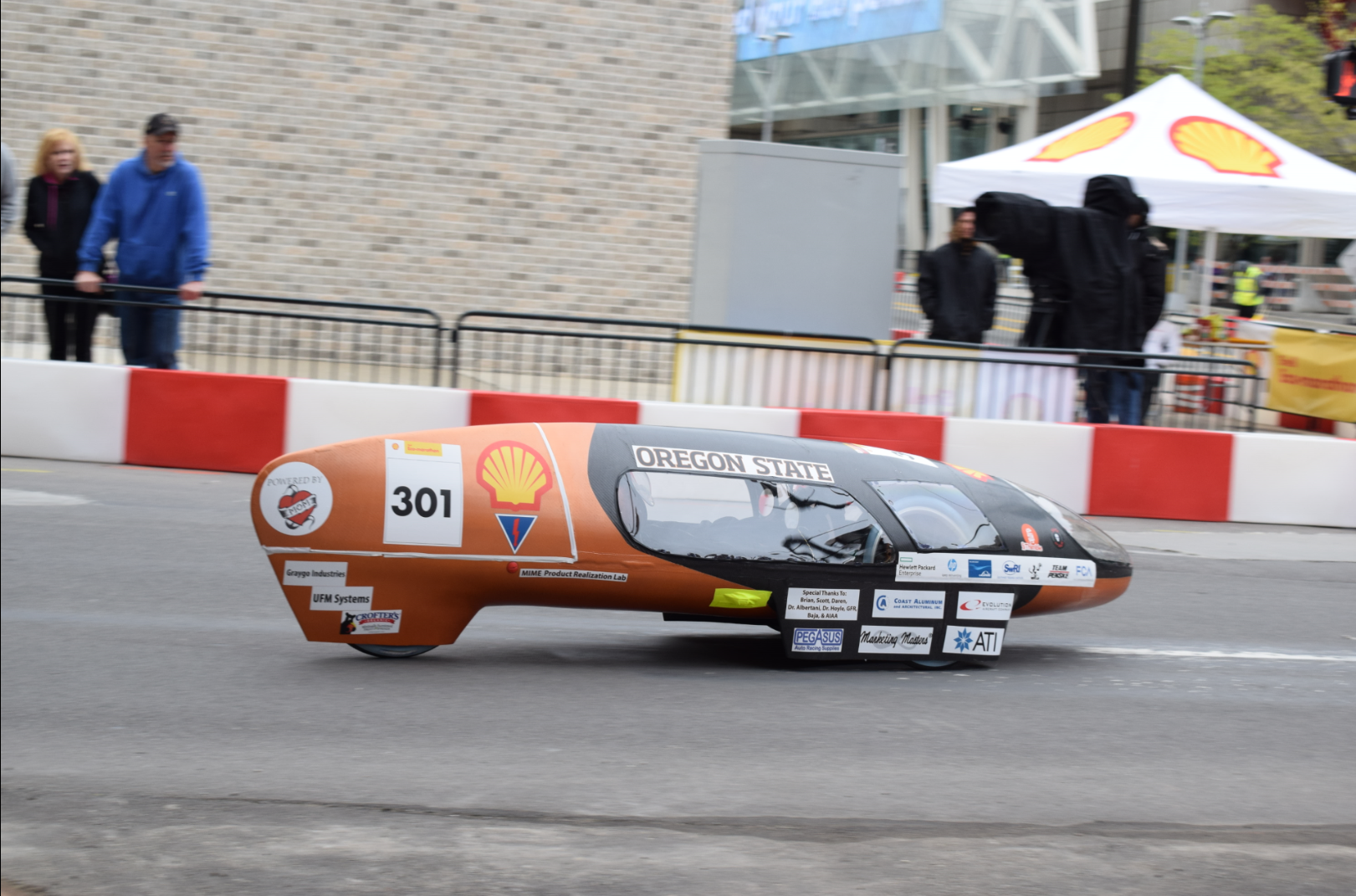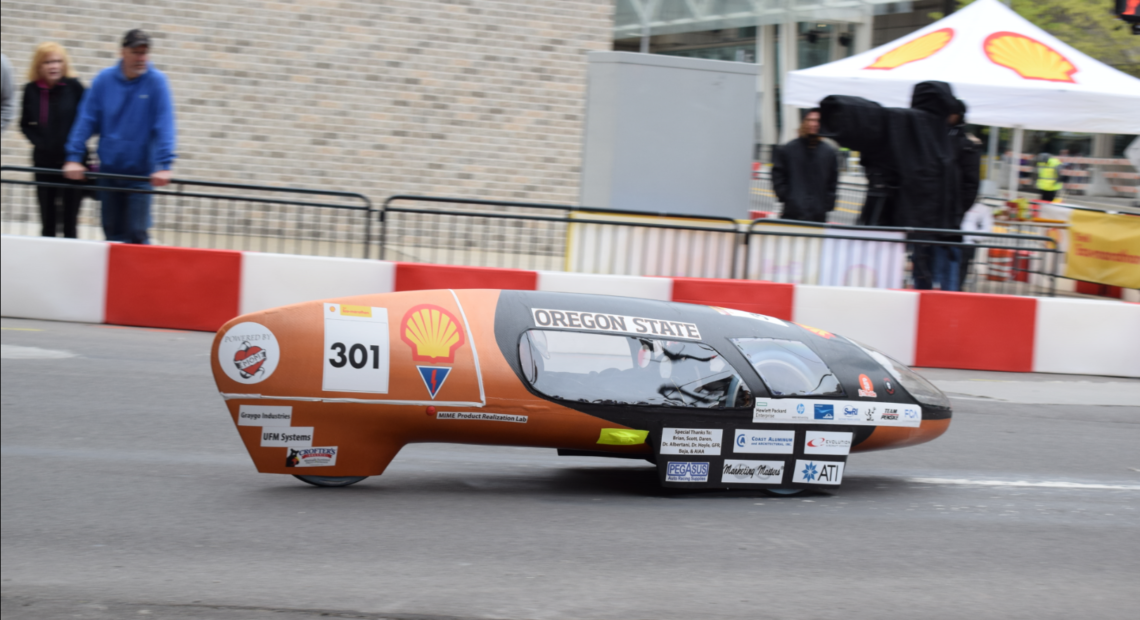
Northwest Students Compete For Title Of Most Fuel Efficient Car
Listen
Astonishing feats in automotive fuel efficiency will be tested in competition later this week by high school and university students from Oregon, Washington and British Columbia.
Oregon State University, Granite Falls High School in Washington and the University of British Columbia are represented among 92 teams headed to Northern California’s Sonoma Raceway. They will compete from April 3-6 in the Shell Eco-marathon for the title of most fuel-efficient car.
OSU senior Aron Walker said the tadpole-shaped one-seater that he and other mechanical engineering majors worked on is nicknamed the “Beaver Bolt.” It is powered by an electric motor and a lightweight battery slightly larger than you would find in a cell phone.
“Essentially, on more or less two phone charges we can go 40 to 50 miles,” Walker marveled.
Walker said some features of the hand-built, super-efficient prototype that might carry over to your future car include its carbon fiber body, which saves weight, and the battery management to extend range. Composite carbon fiber materials can be found in high-performance sports cars today, but have yet to find much mainstream adoption because of the price.
“We’ve worked as a team really hard to find every lightweight solution for every problem we had,” added OSU senior Nathan Imholt. “I know the people that I’m competing against and that I’m working with are going to be the engineers that build the cars of the future and kind of make the world so much better down the road.”
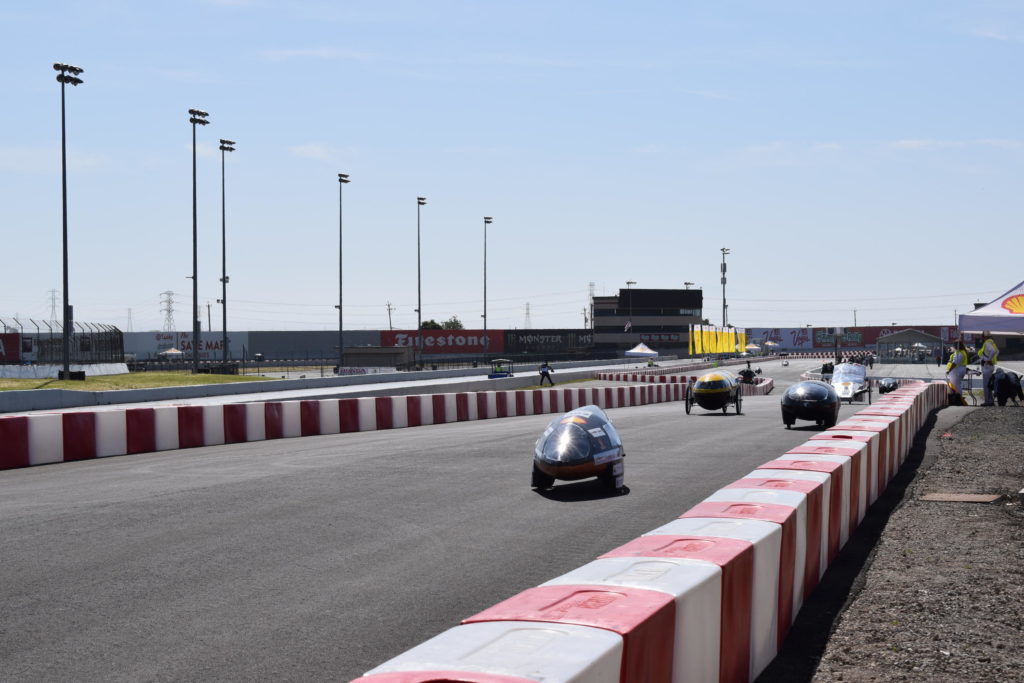
The Shell Eco-marathon competition is not a speed race. The object to maximize fuel-efficiency means vehicle top speeds rarely exceed 30 mph. CREDIT: SHELL ECO-MARATHON AMERICAS
The Shell Eco-marathon competition has two vehicle categories:
- The Urban Concept division emphasizes energy-efficiency within “roadworthy” parameters such as requirements for rear-view mirrors, headlights, four wheels and turn signals.
- The Prototype division is the more freewheeling and futuristic category where maximum efficiency sometimes trumps practicality.
Within those two categories, teams can build drivetrains powered by different energy sources such as gasoline, diesel, ethanol, hydrogen fuel cell or electric batteries. In last year’s Eco-marathon Americas races, the winner in the gasoline-powered category achieved nearly 2,000 miles per gallon.
The Granite Falls High School team is entered in both divisions using diesel engines. The UBC engineering students’ aerodynamic entry in the Prototype division sips gasoline. The driver drives lying down and steers with handlebars similar to a motorcycle. Last year, the UBC students achieved 960 mpg at the Shell Eco-marathon. The UBC’s swoopy Urban Concept vehicle runs on electric batteries.
The three-wheeled Oregon State “Beaver Bolt” has company in the raceway pits this year from a second OSU team, which is driving an electric city car named the “Beavermobile.” That one-seater with two gull-wing doors vaguely resembles a shrunken VW Beetle in profile.
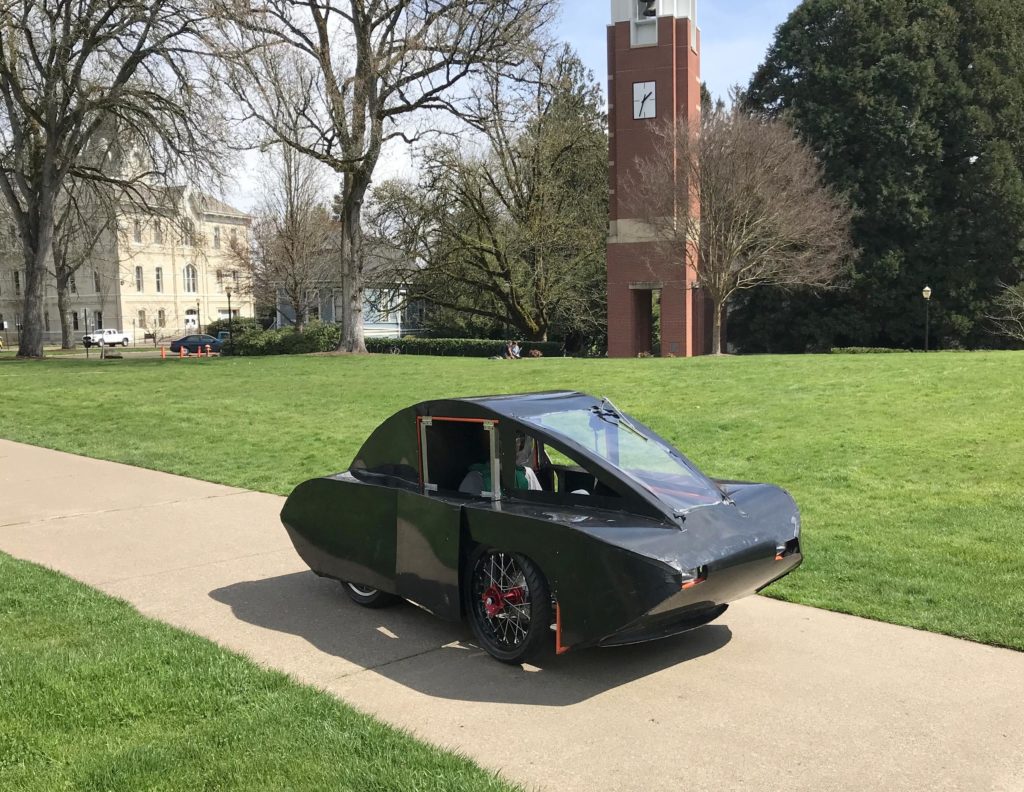
The all-electric Beavermobile making a test run on the Oregon State University campus.
CREDIT: OSU/SHELL ECO-MARATHON
Copyright 2019 Northwest News Network
Related Stories:

Environmental group calls for fossil fuel divestment at WSU
Students at Washington State University held a protest on Wednesday to call for the university to financially divest from fossil fuel companies.
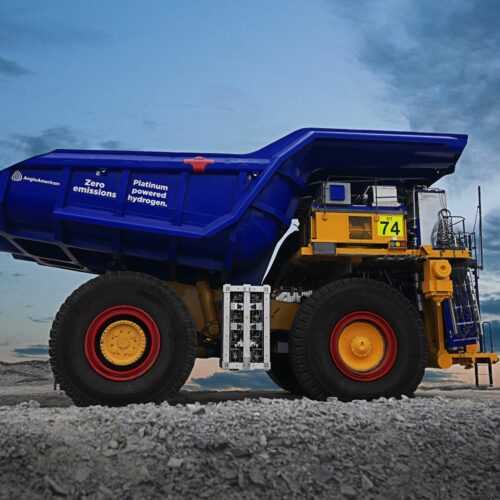
Battery-powered mining trucks to see test run in Lewis County
The site of the last coal-fired power plant in Washington state will soon be home to proving grounds for a carbon-emissions free mining truck.
The truck is a battery and hydrogen fuel cell powered vehicle, developed by Seattle-based First Mode, and it’s the largest emissions free vehicle in the world. Chris Voorhees, co-founder and chief product and technology officer at First Mode, said they’ve developed the technology to focus on decarbonizing the industry that provides the products that fuel our daily lives. Unlike other cleantech engineering focused on the consumer-end products like electric vehicles and solar panels, Voorhees said First Mode is looking at the opposite end of the supply chain.
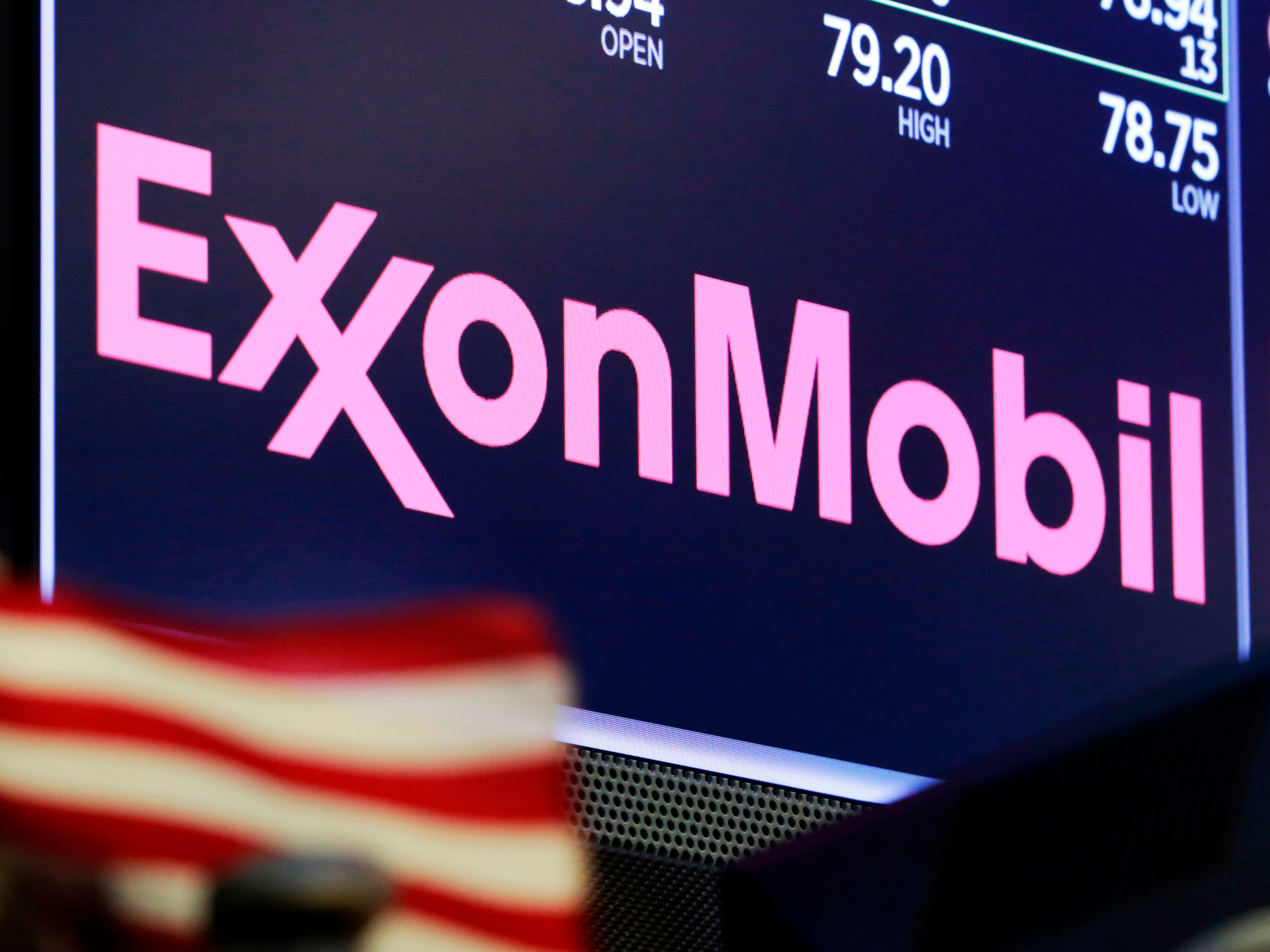
Exxon Lobbyist Caught On Video Talks About Undermining President Biden’s Climate Push
Indiscrete comments made by an ExxonMobil lobbyist to undercover activists may figure prominently in upcoming congressional hearings about the role of oil companies in the battle against climate change.

